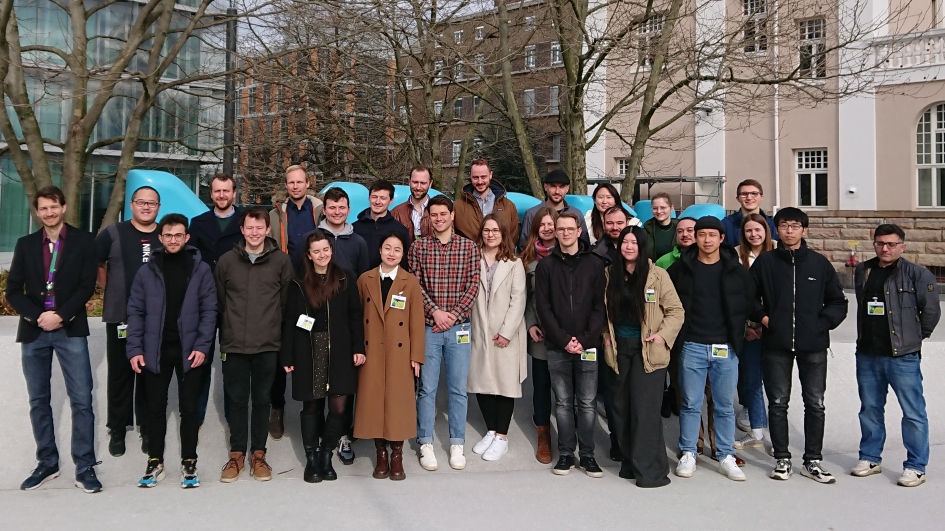
Image: Students and experts gathered for the Chemical Probes Hackathon at Merck, Darmstadt. Credit: Alisa Crisp
Thirty-five people gathered at Merck’s Headquarters in Darmstadt, Germany, recently for the first ever Chemical Probes Hackathon.
Groups of PhD and Master’s students from five local institutions joined experts from academia and industry to learn about and review chemical probes, high quality tools for fundamental and applied biomedical research, including target validation for drug discovery.
These events are a new development for the Chemical Probes Portal, a free, public resource based at The Institute of Cancer Research, that contains expert information about how to choose and use small molecule inhibitors for scientific research and drug discovery.
The students learnt how to distinguish a good chemical probe for a particular protein target from compounds that should not be used. They then reviewed compounds as a group, with supervision and advice from experienced mentors, reaching a total of 31 reviews in a single day.
Potent and selective
Chemical probes have to be potent, selective, and have evidence of target engagement and target modulation in cells as well as ideally have orthogonal and control compounds that can be used.
“It was an absolute pleasure to host the first-ever chemical probes hackathon here at Merck, supporting open science, bright young talent, and boosting biochemical research. It will not be the last hackathon,” said Dr Ulrich Betz, Senior Vice President of Innovation at Merck, Darmstadt.
Susanne Müller-Knapp, Director of Operations for the Chemical Probes Portal and Chief Operating Officer at the Structural Genomics Consortium (SGC) Frankfurt, was one of the organisers and reflected on the event: “It was a fun day and I learned a lot working with the PhD students and our expert coaches. I also hope with these kinds of events, we can help everyone to look more critically at the compounds that are being used to interrogate a protein target.”
The students enjoyed the day as well. Theresa Ehret, a PhD student from the SGC Frankfurt said, “I thoroughly enjoyed the Hackathon and the opportunity to collaborate with so many talented individuals. One of the highlights for me was learning how to critically examine literature about chemical probes, which will undoubtedly prove valuable in my future research endeavours.”
Yeojin Kim, a PhD student and crystallographer at the SGC Frankfurt agreed that “this is a valuable opportunity where I can learn a lot about compound evaluation with great coaches and young drug developers.”
Teamwork
This unique event combined the experience of medicinal chemists from the pharmaceutical industry, including Merck and Boehringer Ingelheim, with the academic knowledge of students and experts from the SGC Frankfurt, the University of Freiburg, the Technical University of Darmstadt, the University of Würzburg, and the University of Marburg.
Professor Paul Workman, Harrap Professor of Pharmacology and Therapeutics at The Institute of Cancer Research, London, and Director of the Chemical Probes Portal said, “I’d like to thank all those who organised and participated in this event. Especially the students, mentors, Portal staff and colleagues at Merck. I think it was a fantastic success. We will be running more of these as it’s a win-win for all involved and the research community benefits from getting more probes reviewed.”
The Chemical Probes Portal is now looking for partner organisations to host probe review hackathon events around the world. Get in touch with the team if you are interested as a host or an attendee.